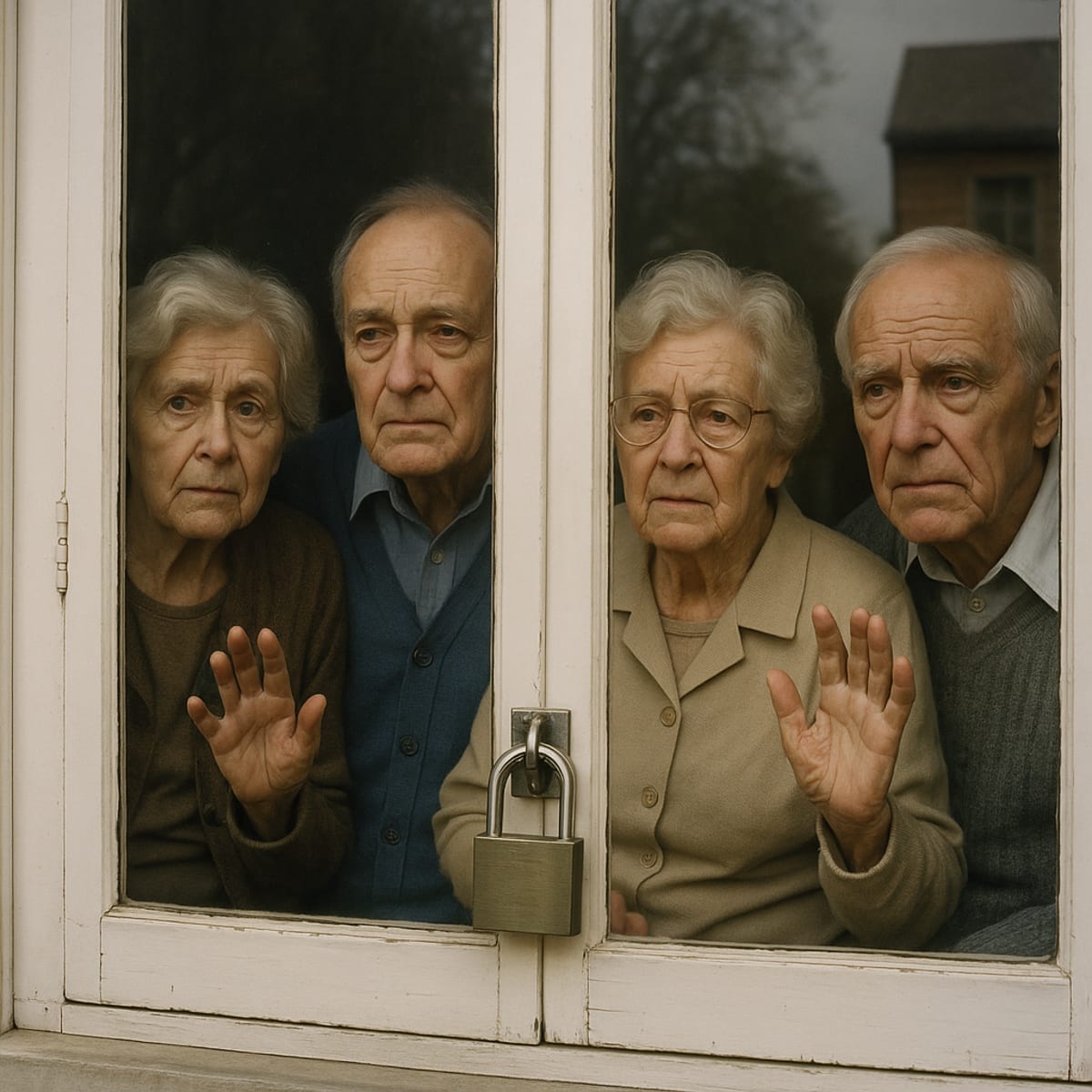Somewhere in South Africa, in the middle of winter 2025, an old age home has gone into full lockdown again. No visits. No shopping trips. No exceptions. The reason? A “nationwide pneumonia outbreak.”
We’ve seen this story before. We’ve lived through it. And still, here we are again, repeating it.
There’s a phrase that says: “Those who cannot remember the past are condemned to repeat it.”
But perhaps it's not forgetfulness. Perhaps it’s something worse.
Maybe we remember… but we’re too tired, lazy, or afraid to think for ourselves.
The Danger of Default Thinking
We’ve had five years since 2020 to reflect. Five years of studies, evidence, and raw experience. We now know:
- That social isolation in frail care facilities destroys more than it protects.
- That most elderly people would rather see their family than be sealed off “for their own good.”
- That infections don’t stop at the door if staff are coming and going.
- That masks and distancing in outdoor spaces are mostly symbolic gestures.
- That “immune boosters” don’t fix loneliness.
And yet, in 2025, some frail care centers still fall back to the easiest path: lock the doors and wait it out.
Not because it’s the best option. But because it’s the least controversial one.
Because it’s harder to defend freedom, dignity, and balanced risk, than it is to point to a policy and say: “We did what we had to do.”
When Institutions Stop Thinking
What this reveals is something deeper about us as a society. When challenged, we reach not for reason, but for the last template that made us feel safe.
Even if that template nearly broke us. Even if perhaps kept the virus out, but let despair, confusion and decline walk right in.
We outsource our thinking to the past, as if “doing what worked last time” is the same as doing what’s right this time.
A Quiet Call for Courage
This isn’t an attack on a specific frail care center. This is a lament, for how quickly we fall back into fear, and how slowly we defend wisdom and memory.
I am not asking for recklessness. I am asking for thought. For policies rooted in what we’ve learned, not what we fear.
Because if we cannot think clearly on behalf of the most vulnerable…then perhaps we are the ones in need of care.
